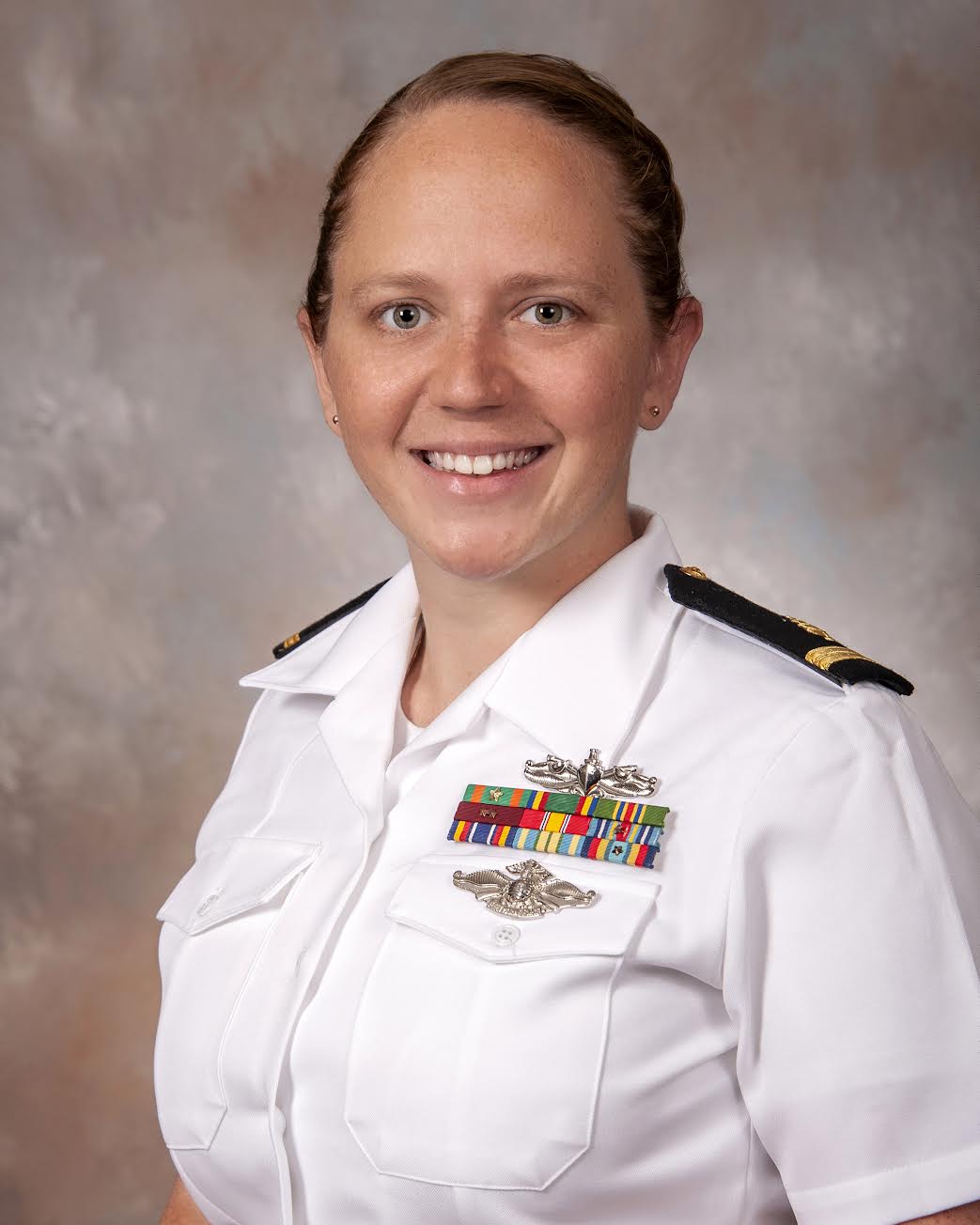Military and Veterans Psychology
Factors Affecting Sleep Among U. S. Navy Sailors With and Without Deployment Experience
(PS6-D83) Factors Affecting Sleep Among U. S. Navy Sailors with and Without Deployment Experience

Jennifer Lewis, B.S.
Graduate Student
Uniformed Services University of the Health Sciences
Rockville, Maryland- LA
Laura Aldrich, M.A., M.S.
Graduate Student
Uniformed Services University of the Health Sciences
Bethesda, Maryland - CD
Claire Demming, M.S.
Graduate Student
Uniformed Services University of the Health Sciences
Riverdale Park, Maryland - EM
Elisabeth Mata, B.A.
Graduate Student
Uniformed Services University of the Health Sciences
Bethesda, Maryland - AD
Abby Diehl, ABPP, Ph.D. (she/her/hers)
Assistant Professor
Uniformed Services University of the Health Sciences
Washington, District of Columbia 
Jeffrey Goodie, ABPP, Ph.D.
Professor, Deputy Director of Research
Uniformed Services University of the Health Sciences
GAITHERSBURG, Maryland
Author(s)
Co-Author(s)
Background: Insufficient sleep in the US Navy is a chronic concern, which is associated with serious accidents costing the nation billions of dollars and loss of life. Within Navy culture, sleep has historically been treated as a rationed resource and the need for sleep has been viewed as a sign of weakness. Recent Navy policies have emphasized the need for sufficient sleep and there is increased interest in what affects the sleep of sailors. This study aimed to better understand relations between psychological distress, sleep duration, sleep quality, and deployments among U.S. Navy sailors.
METHODS: A secondary analysis of sailors’ self-reported sleep, psychological distress, and deployment history data from the 2018 DoD Health-Related Behaviors Survey data was analyzed. Psychological distress was assessed utilizing the Kessler K6 scale. Chi-square analyses compared the psychological distress among Sailors who had deployed and those who had not deployed. A logistic regression was used to examine relations between self-reported sleep duration and quality with psychological distress.
RESULTS: Among 3,675 sailors, 27.8% reported moderate and 9.5% reported significant psychological distress. Sailors who had been deployed (n = 1131) compared to those who had not been deployed (n = 1894) reported significantly higher levels of psychological distress (X2 (10, 3025) = 32.47, p < .001). Deploying three or more times was associated with 36% odds of getting less than 7 or more hours of sleep (OR= .64, 95% CI [.50, .80]) and 22% odds of reporting worse sleep quality (OR= .78, 95% CI [.62, .98]). Moderate psychological stress was associated with 58% increased odds of reduced sleep duration (OR = .42, 95% CI [.35, .50]) and severe psychological distress was associated with 80% odds of reduced sleep duration (OR = .20, 95% CI [.14, .28]). As for sleep quality, moderate psychological distress was associated with 70% increased odds of reduced sleep quality (OR = .30, 95% CI [.25, .35]) and severe psychological distress was associated with 91% increased odds of reduced sleep quality (OR = .09, 95% CI [.07, .12]).
Conclusion: The current study highlights important cross-sectional relations between self-reported psychological distress, deployments and sleep. Sailors who have deployed three or more times and those reporting moderate or severe levels of psychological distress are more likely to experience sleep disruptions. Successfully improving sleep throughout the Navy will require efforts to target these factors. Additional research is needed to understand what other factors contribute to sleep impairment, what methods are effective for improving sleep quality/quantity, and how leaders can promote healthier sleep habits across the fleet.
Abstract Category: Poster
Topics: Military, Sleep

